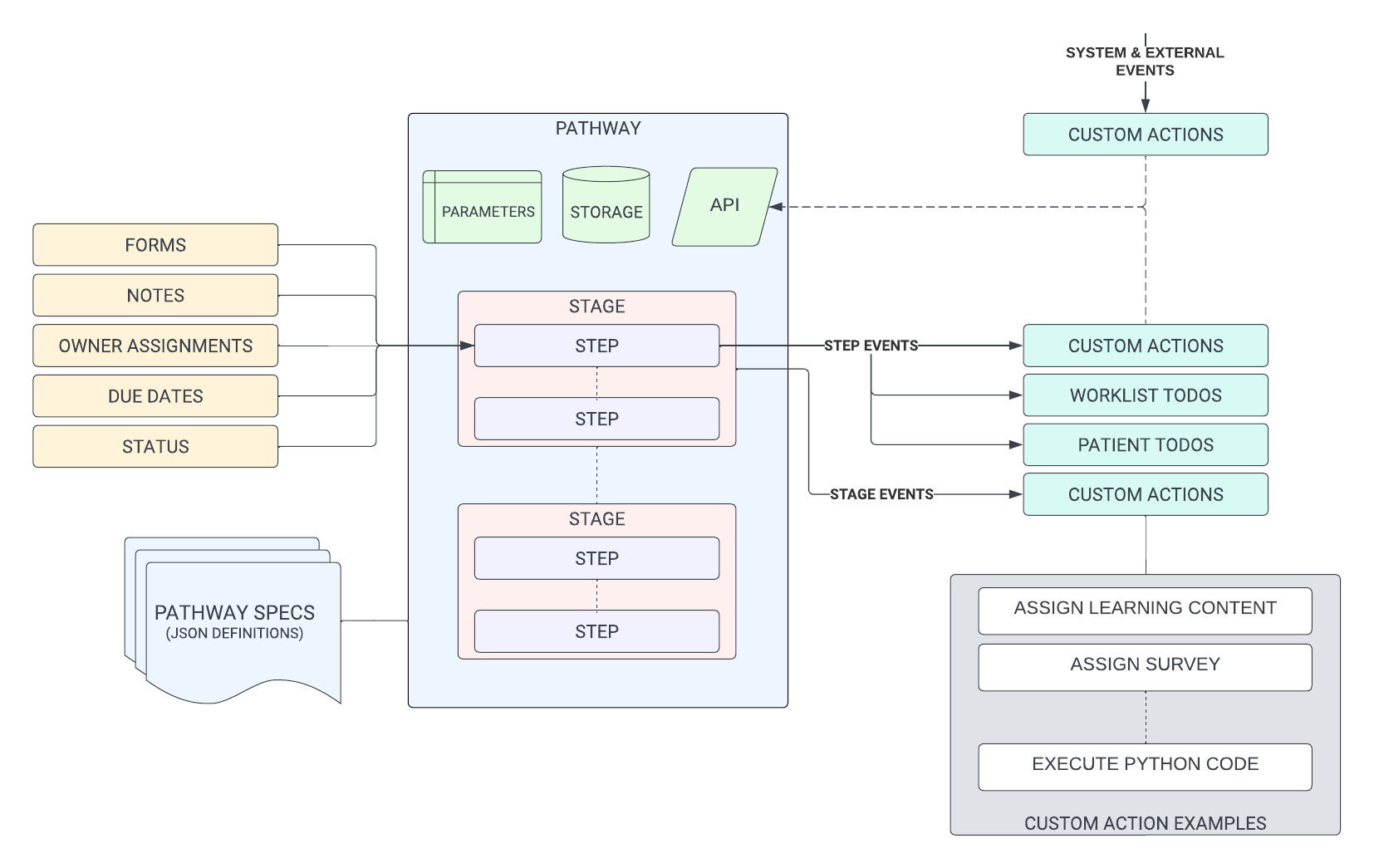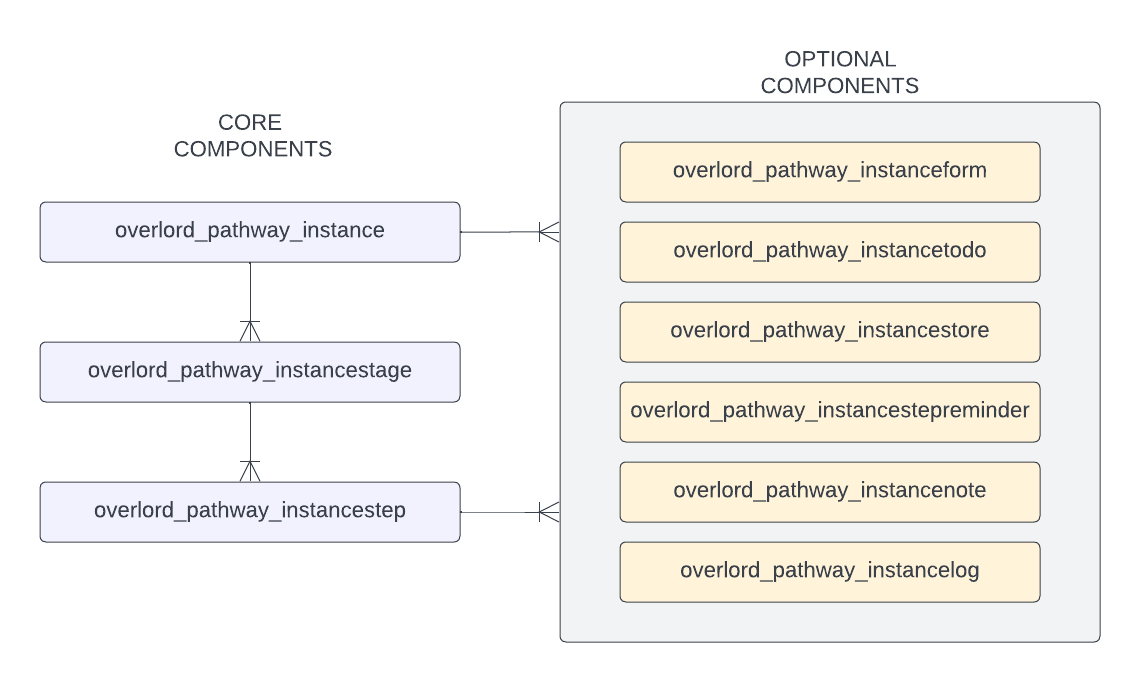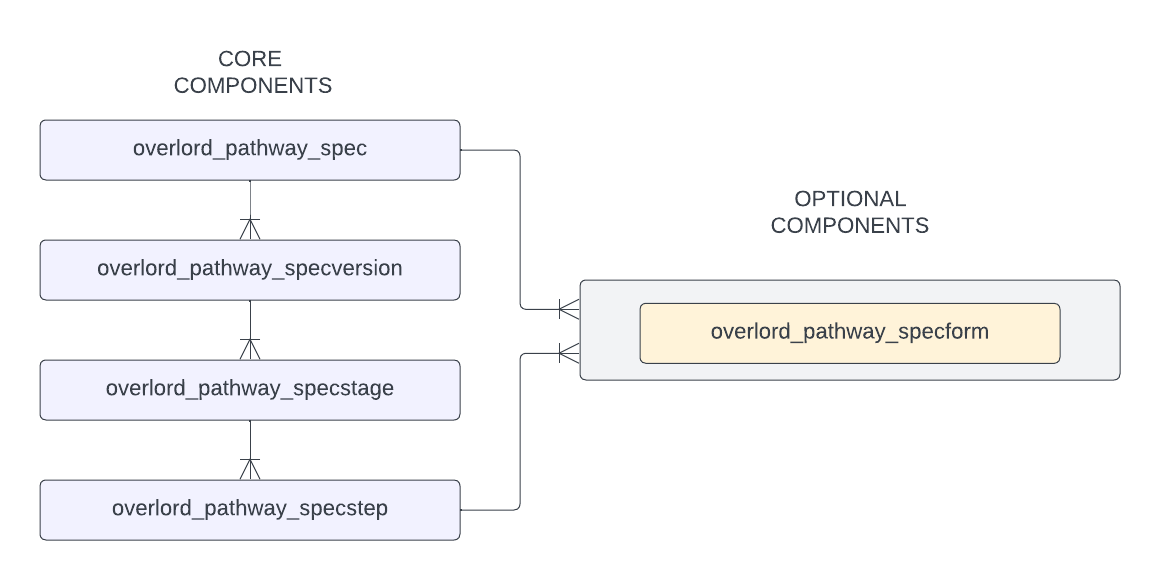Pathways
Pathways are a feature of the Carium platform that allows Care Teams to manage workflows that combine clinical and administrative tasks into a single view. These workflows consist of stages comprised of steps. Each step can have various supporting objects attached. Some examples would be custom forms, patient or provider todos, and notes. Automations can be triggered with any update to the status of a step or stage in the pathway which enables the development of sophisticated rules to drive the operation of the pathway or external systems. A high-level view of the pathway configuration is included below.

The data warehouse for pathways can be subdivided into two sections: the spec and the instance. Tables that
reference a spec define the pathway and its various components, while the “instance” represent a single pathway
that's assigned to a patient. These two categories of objects will be contained in tables that start with
overlord_pathway_spec* or overlord_pathway_instance*
Pathway Instances
For most analytics application, pathway instance will be the primary interest. The core of this collection of tables is
the overlord_pathway_instance table. This contains single entry for each pathway that has been assigned to a patient.
From this instance you can walk the various related tables to expand the data set associated with this instance.
Just below the instance in importance are the overlord_pathway_stage and overlord_pathway_step tables. These are the
core tables that define the progress through the pathway.

Example Pathway Instance Query
The query below will return all your organizations pathways by name along with the count of the steps in each of the possible step-states. Steps can be:
newinprogressinreviewcompleteskippedincomplete
SELECT
pw_spec.name AS pw_name,
pw_step.state AS step_state,
COUNT(pw_step.id) AS step_count
FROM overlord_pathway_spec AS pw_spec
JOIN identity_core_organization AS org
ON org.id = pw_spec.organization_id
JOIN overlord_pathway_specversion AS pw_version
ON pw_version.spec_id = pw_spec.id
JOIN overlord_pathway_instance AS pw_instance
ON pw_instance.version_id = pw_version.id
JOIN overlord_pathway_instancestep AS pw_step
ON pw_step.instance_id = pw_instance.id
GROUP BY 1, 2
LIMIT 50
Pathway Specifications
Pathways are specified using a collection of JSON specifications. The **overlord_pathway_spec*** tables contain these
JSON specification for the various components of a pathway. The layout of the core spec components should look similar
to the instances. he core components adds a new table that houses the specversion. This allows for updating the
pathway while still keeping the same top-level name for the pathway. he optional components in the specifications are
fewer as many of the other instance components are built-in and don’t require further specifications (for example:
todos, reminders, notes).

Pathway Spec to Instance Links
There are many places within the table reference where you will find linkages between the instance and spec components of a pathway. This gives traceability to the specific version of pathway spec that was used in creating the pathway instance. These link can be found in the associated table schemas.